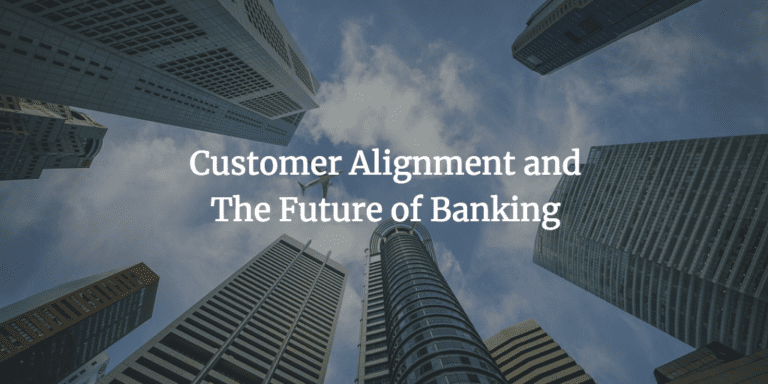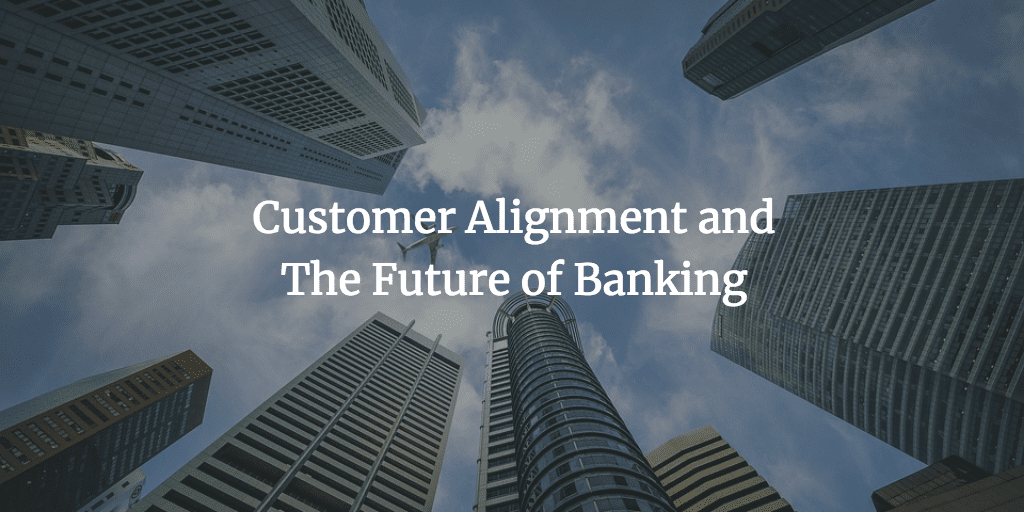I have been thinking more about customer alignment lately. We are adding this category in the LendIt Fintech Awards in 2019 as Scott Sanborn, the CEO of LendingClub mentioned in his opening keynote in April. It is an issue which gets to the heart of what is wrong with banking today and how fintech can help create change.
First, let me begin with a personal story. I have had a banking relationship with the same large bank since 1993. I opened two accounts, business and personal, when I was getting my first business off the ground. Needless to say money was really tight. I would occasionally bounce checks and I used credit cards as a way to borrow money but I managed to get by. What I really needed back then, but didn’t have, was a financial institution that had my best interests in mind.
I remember one time when I mailed a batch of checks without the money in the bank but was confident by the time the checks were deposited the money would be there to cover them all. It wasn’t. So, I ended up bouncing four or five checks and paying a fortune in overdraft fees. But here was the kicker. The bank could have processed two of these checks but instead the largest one came out first, so all the checks bounced.
Thankfully not all banks do this but it is common practice in many banks and back in the 1990s I am guessing it happened a lot more. But I believe the days are numbered for this kind of program.
A Win-Lose Proposition is a Losing Game
Overdraft fees are just one of a myriad of fees charged by banks. There are minimum balance fees, monthly maintenance fees, wire fees, returned deposit fees, ATM fees just to name a few. Many of these fees are a win-lose proposition – as in the bank wins and you lose. But as finance becomes more transparent and better options emerge revenue from these kinds of fees is destined to fall.
At LendIt Europe last year Jaidev Janardana, the CEO of Zopa, the leading UK peer to peer lender that is applying for a bank license, said that the next generation of banking will start with the customer. It will entail a fair business model that is designed to win when customers win. Banking products will be simple, transparent and based on customer needs.
Enterprising entrepreneurs are already tackling pain points like overdraft fees. Fintech companies like Dave, MoneyLion, Chime and PayActiv have all built creative ways to avoid these kinds of fees whether it is with reminders, an inexpensive line of credit product, a paycheck advance or some combination. And hundreds of companies have built personal financial management apps to help people manage the money they earn better.
ATM fees is another unpopular fee charged by banks. Digital banks have had to attack this head on given they have no physical branches where you can withdraw cash. Many digital banks limit you to a certain number of free withdrawals a month but they all have some kind of free program here.
Customer Alignment is Win-Win
One of the founding principles of business should be the idea of the win-win. The revenue gained by a business should be the direct result of making their customers’ lives better. This is customer alignment and I think it is going to be one the big trends in financial services over the next decade.
The large American banks are very profitable. The big four (JPMorgan Chase, Bank of America, Wells Fargo and Citi) are all frequently on lists of the most profitable companies in the country. A good chunk of this profit comes from fees and I think this revenue is going to reduce sharply as time goes on.
The millennials and Generation Z, those people born after 1982, are simply not going to accept these bank fees when better alternatives are available. They have grown up in a digital world and value customer experience far more than their parents did.
Now, I am definitely not part of either of those generations but I have developed an abhorrence for bank fees. I will go out of my way to avoid ATM fees on principle and thankfully I no longer have to worry about overdraft fees.
One day, I am going to switch to a new bank and when I do it will be a digital bank that is far more focused on customer alignment and creating win-win products. The only reason I have not done this yet is the dozens of transactions that get automatically deducted or deposited each month.
We have put up with lousy products and a bad customer experience for long enough. Relying on customer inertia is not a good growth strategy. The successful bank of the future will have customer alignment at the core of everything they do. And fintech companies will be taking the lead here.



